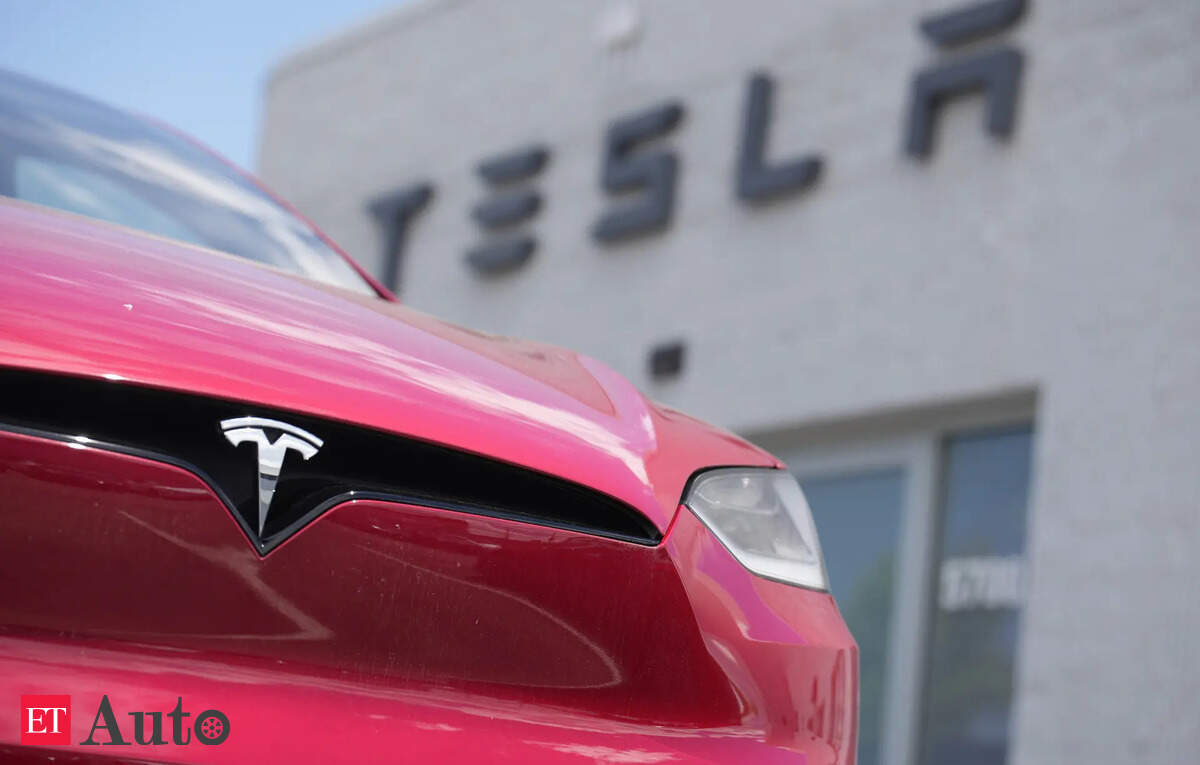Tesla's EU Sales Drop Sharply by 52% in April

Sales of Tesla vehicles experienced a significant downturn in the European Union during April, plummeting by more than half, while Chinese electric car manufacturers saw a notable surge in their market share. According to the European Automobile Manufacturers' Association (ACEA), this shift occurred even as overall sales of electric cars in the 27 EU nations increased. Tesla's declining performance has been attributed to several factors, including scrutiny over CEO Elon Musk's activities, such as his work with US President, Donald Trump, and the company's comparatively ageing product lineup.
Specifically, Tesla's sales in April dropped to 5,475 cars, a stark 52.6 percent decrease compared to the same month in the previous year. For the first four months of 2025, Tesla's sales fell by 46.1 percent year-on-year, totaling 41,677 cars. This decline saw Tesla, once the dominant force in electric car sales, overtaken in April by ten competitors, including established names like Volkswagen, BMW, and Renault, as well as the rapidly growing Chinese manufacturer BYD, as reported by JATO Dynamics consultants.
Tesla had previously announced in April that its global sales in the first quarter had decreased by 13 percent. The company attributed this partly to production losses during an upgrade to its Model Y standard-bearer. Despite these figures, Elon Musk has recently stated that Tesla sales are "doing well" and announced a reduction in his work assisting US President, Donald Trump with US government spending cuts.
In the broader European electric vehicle market, Skoda's new Elroq emerged as the top-selling electric car in April, with Tesla's Model Y, the former leader, falling to ninth place. Overall, electric car sales rose by 26.4 percent year-on-year in April, capturing a 15.3 percent share of the total market, according to ACEA. However, this growth is not uniform across Europe, with differing government incentives and manufacturer strategies leading to varied adoption rates. Germany, Belgium, Italy, and Spain have seen significant increases in EV sales, while France has experienced a decline.
Sigrid de Vries, ACEA's director general, commented on the trend, stating, "The share of battery-electric vehicles is slowly getting momentum, but growth remains incremental and uneven across EU countries." She emphasized the need for continued government support, including "purchase and fiscal incentives, recharging infrastructure and electricity prices," to make battery-electric vehicles a mainstream option. De Vries also highlighted "the merit of keeping a technology-neutral approach," given the sustained popularity of hybrid vehicles among consumers.
Sales of hybrid cars, which feature a small electric battery, continue to be strong in the European market, with a 20.8 percent increase since the beginning of the year. Conversely, sales of petrol-only cars have fallen by 20.6 percent during the same period. The Volkswagen group maintained its position as the top-selling brand in Europe, with its sales increasing by 2.9 percent in April.
Chinese brands have become a significant factor in the growing popularity of electric and hybrid cars, according to JATO Dynamics. These brands, including BYD, MG, Xpeng, and Leapmotor, now hold a 7.9 percent share of the European market. Their combined sales in the electric and hybrid segments surged by 59 percent over the year, while other manufacturers saw a 26 percent increase. JATO expert Felipe Munoz noted that it remains to be seen whether the European Union will impose tariffs on Chinese hybrid cars, similar to those potentially considered for Chinese electric vehicles.







